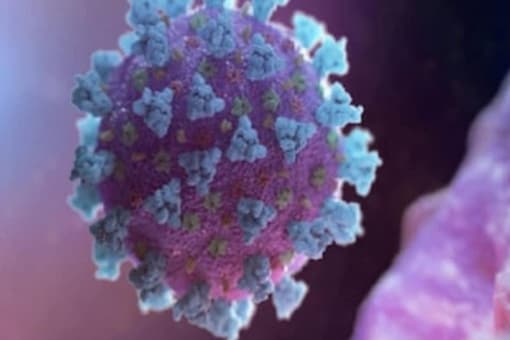
Marburg Virus: How big a threat to the world is the ‘Marburg’ virus spreading like Corona?- The World Health Organization (WHO) has confirmed the first case of the Marburg virus in Guinea. This is the first case recorded in West Africa, which is related to the deadly virus Ebola. Like Kovid, this virus has also come from animals to humans. This virus, which reaches humans from bats, is so deadly that the mortality rate of the disease caused by it is 88 percent. Giving information, the World Health Organization (WHO) said that on August 2, it was confirmed in a sample of the death of a patient in South Gueckedou province. Dr Matshidiso Moeti, WHO’s regional director for Africa, says that the potential of the Marburg virus to spread is so high that it has to be stopped at the beginning. This news came just two months after the WHO announced the end of the second wave of Ebola in Guinea.
This wave started last year and 12 people lost their lives in it. In Geneva, the WHO said that it is a matter of great concern at the national and regional level, although its threat at the global level is still low. Let’s know what is this virus and why is it so deadly-
history of Marburg
Germany and Yugoslavia are the countries where this epidemic first spread when infected green monkeys were brought here. The mortality rate among 31 patients was 23 percent. After this, the worst epidemic was spread in Angolo in 2005, where 252 people were affected by this disease and during that time the death rate was 90 percent. The epidemic was spread by the reuse of infected transfusion equipment in the children’s ward. In the case of Ebola, the infection can also occur from dead bodies during funerals. Also, there is a risk of getting it from sexual contact. According to the news published in Forbes, in 2009, there was news of this disease in two tourists in Uganda who had gone to visit the caves here. One of these was a Dutch woman who died after being attacked by bats. The other woman was from Colorado, who was caught by fever and her condition worsened after returning from Uganda. Initially, there was no evaluation of any kind, later when they came to know about the Dutch woman, they asked for a re-examination. Both these women had gone to the same cave. It was later confirmed to be Marburg.
how does it spread
Marburg virus is mainly associated with the exit of Rauzettus bats from the formation of residential colonies in caves and mines. According to the WHO, once it is in the grip of humans, it starts spreading through physical contact, fluid or infected surface and other materials of the infected person. Since 1967, Marburg has spread 12 times on a large scale. This infection has mostly happened in South and East Africa. Both Marburg’s cases and this year’s Ebola cases were found in Guinea’s Guaidów district. This district is situated on the border of Liberia and the Ivory Coast. In 2014-2016, the first cases of the Ebola epidemic were seen at the largest level in history. These cases were also found in forested areas of south-eastern Guinea.
what are the symptoms?
Symptoms include headache, vomiting blood, muscle pain, and bleeding from various pores found in the body. Many patients develop symptoms of severe bleeding within seven days. The death rate in the last outbreak was 24 to 88 percent, depending on the strain of the virus and how the cases were handled.
what is the treatment?
Just as no effective antiviral or vaccine for Ebola has come to the notice, similarly effective treatment on Marburg has also not been known. Simply hospitalized therapy, which includes balancing the patient’s fluids and electrolytes, monitoring oxygen levels and blood pressure, transfusions for clotting and bleeding, and treating complications associated with infection.
Silver Lining
The good news, in this case, is that if we look at the history of the Marburg epidemic, it has happened on a much smaller scale and on a limited scale than Ebola.




































